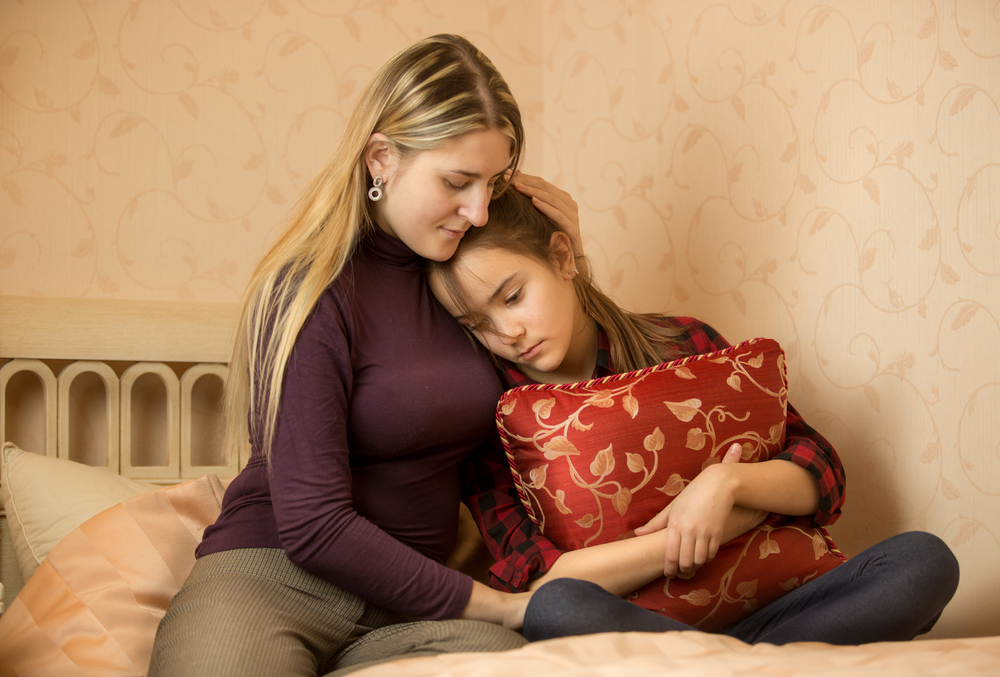As a parent of a teen with Attention Deficit/Hyperactivity Disorder (ADHD) or Oppositional Defiant Disorder (ODD), it’s likely difficult to have the kind of relationship you might want with your child. It’s possibly challenging to find the soft spot inside of them when you’re focused on the behavioral, emotional, and academic concerns that come with their diagnosis.
For instance, symptoms of ADHD include difficulty with paying attention, difficulty with organization, excessive talking, fidgeting, along with hyperactivity and impulsivity. These symptoms can impair a teen’s functioning in school, as well as interrupt their relationships and functioning at home and among peers.
Perhaps for parents, teens with ODD exhibit a bit more of a challenge. This disorder is characterized by a pattern of angry or irritable behavior, vindictiveness, and argumentativeness. To be diagnosed, an adolescent must display four symptoms from one of the following categories: angry or irritable mood, argumentative or defiant behavior, and vindictiveness. This disorder is similar to Conduct Disorder only that those with this disorder do not act aggressively towards others, do not destroy property, and do not show a pattern of theft.
No doubt children moving through the process of adolescence while also managing the difficult symptoms of ODD and/or ADHD can be difficult to parent. Those children can be more at risk to fail academically, occupationally, and socially, and those failures might lead to problems at home. Teens with ADHD and ODD symptoms and their families can experience immense challenges in their relationship.
In fact, The Journal of Abnormal Child Psychology published a research study in 2001, in which they explored the quality of relationships between parents and teens. The study looked specifically at teens with Attention Deficit/Hyperactivity Disorder (ADHD) and oppositional defiant disorder (ODD). The study surveyed 87 male teens from ages 12 to 18 with ADHD/ODD and their parents. They were compared to a community control group on certain factors of the parent-teen relationship. The study revealed that the parents and teens with ADHD/ODD had significantly more issues in their relationship. There was more anger during conflicts, more negative communication in general, and used more aggressive tactics with each other compared to those in the community control group.
Perhaps for this reason, therapy that focuses on family relationships and systems can benefit ADHD or ODD teens and their parents. Family Focused Therapy aims to improve the systems and relationships within a family network. It strives to change the relationship within families in order to help them better manage the specific problems they might be facing. This form of therapy is used with a wide range of mental illnesses and is based on two principles:
- Many mental illnesses are made worse by the dysfunctions present in families.
- Close family members are often the supports that an individual suffering from mental illness has and are therefore extremely important in treatment.
Based on these principles, Family Focused Therapy aims to change the way family members interact, improve the functioning of the family as a unit, and improve the functioning of individuals within the family.
Of course, treating the psychological illnesses present in the family can also help. For instance, according to the American Academy of Child and Adolescent Psychiatry, when treated early with a comprehensive treatment plan, ODD can be managed and a teen can eventually return to normal functioning. However, if not treated through therapeutic means, such as psychotropic medication and therapy, teens with untreated ODD will have a very difficult time adapting to the demands of adulthood and will often have trouble holding a job, staying in relationships, and avoiding the law.
For teens with ADHD, Cognitive Behavioral Therapy will explore the relationships between thinking, feeling, and behaving. In this way, an ADHD teen can become more aware of his or her patterns of thought and how they influence their behavior, and more importantly, make better choices. Both medication and therapy combined can significantly support a teen in their success at school, home and work.
Certainly, the parent-teen relationship is not easy regardless of the presence of a diagnosis. Yet, with psychological illness during adolescence, therapy that addresses family relationships can restore hope, healing, and health.
Reference:
Edwards, G., Barkley, R. A., Laneri, M., Fletcher, K., & Metevia, L. (2001). Parent–adolescent conflict in teenagers with ADHD and ODD. Journal Of Abnormal Child Psychology: An Official Publication Of The International Society For Research In Child And Adolescent Psychopathology, 29(6), 557-572. doi:10.1023/A:1012285326937








0 Comments